7 Food Safety Tips Doctors Want You to Know
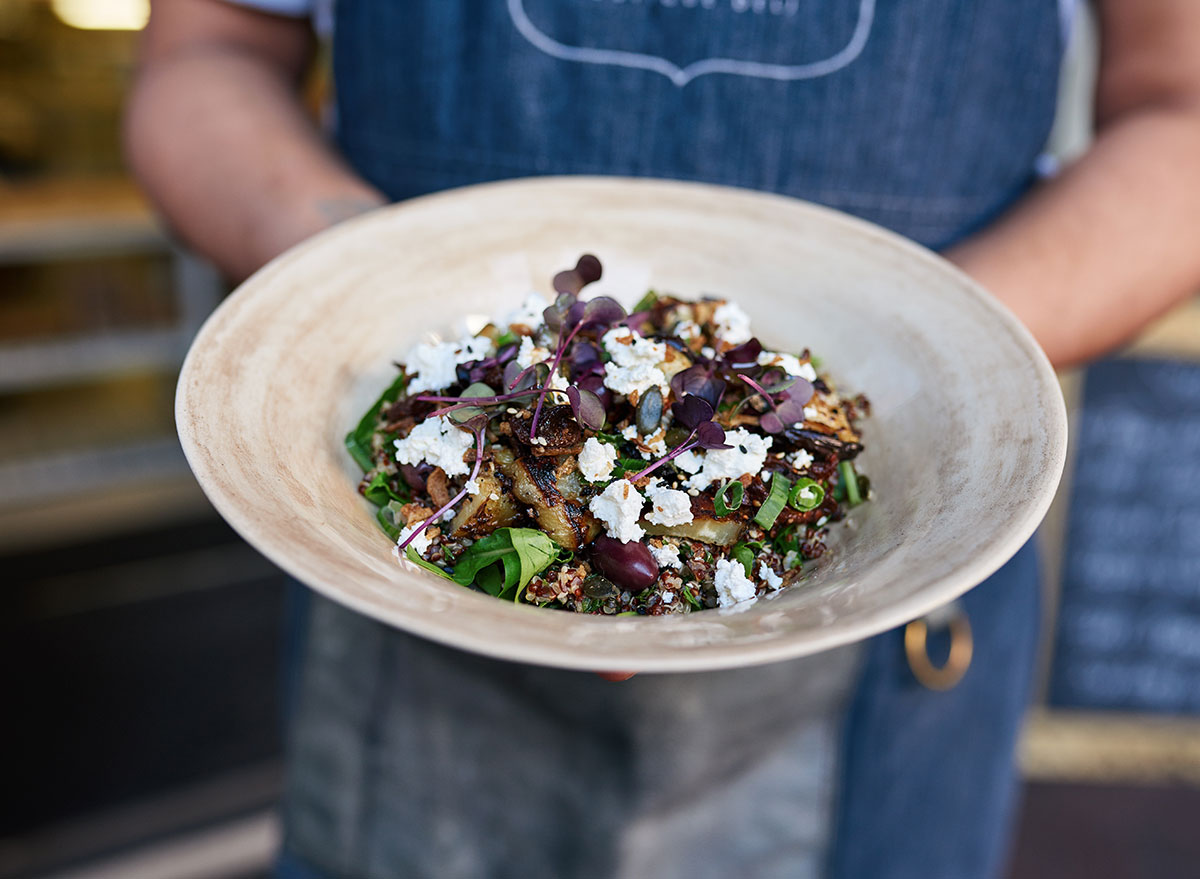
Following proper food safety steps in the kitchen is always important, however, right now it's imperative that you practice those preventive measures outside of the kitchen, as well.
While you likely already know general food safety facts, such as disinfecting surfaces that raw meat has touched or cooking meat thoroughly, there is a handful of other procedures you can follow to stay safe during the pandemic at restaurants and at the grocery store.
Daniel Rosen MD, bariatric surgeon, and concierge COVID-19 medical adviser and Dr. Lynette Charity, board-certified MD and anesthesiologist, shared a few food safety tips that may help to reduce your risk of exposure to the virus as well as other pathogens.
STAY INFORMED: Sign up for our newsletter to get the latest coronavirus foods news delivered straight to your inbox.
Reheat your food after you've ordered takeout.
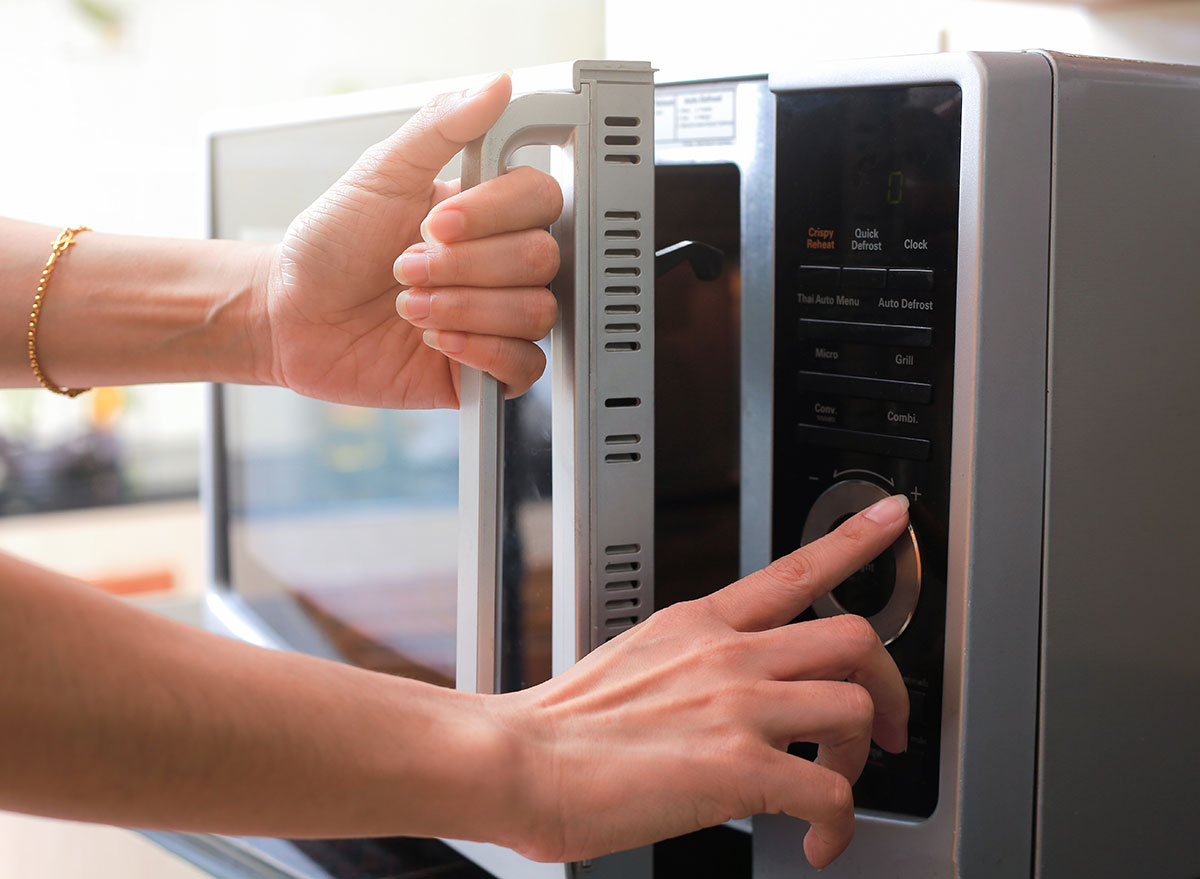
Local restaurants are heavily relying on delivery and takeaway orders during this time to stay in business, so it's important to continue to do so even as restrictions begin to lift. While there is no evidence that suggests the coronavirus is transmissible through food or even food packaging, if you still feel uneasy about ordering takeout, Rosen says, "it's always a good idea to reheat the food back up to serving temperature to kill any bacteria."
Not to mention, the heat will also destroy any traces of viral particles.
Bring your own water bottle to the restaurant.

As the shelter-in-place-orders lift, restaurants are beginning to reopen and while many will be following the National Restaurant Association's guidelines, customers can take it one step farther by taking their own precautions while dining in. If you're planning on just drinking water, Rosen suggests that opting out of using the restaurant's glasses would be a great way to reduce the risk of contracting the virus.
"Bring your own water bottles so you don't have to drink from the glasses," he says. "While it's okay to trust, why take any extra chances?"
Use disinfectant wipes on grocery cart handles.
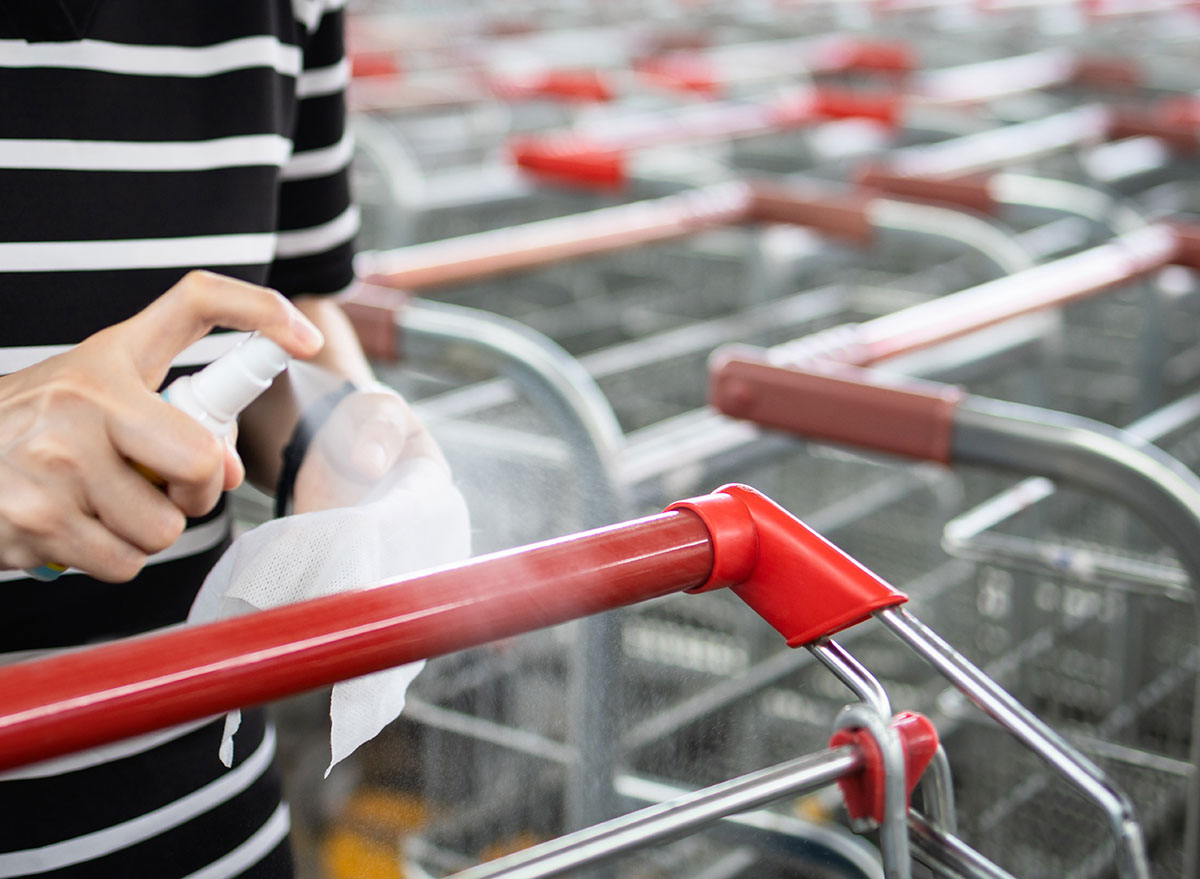
You should continue to take precautions at the grocery store, such as wiping down surfaces that many others have touched.
"Always bring disinfectant wipes with you while food shopping and wipe down all surfaces, such as doorknobs, car door handles, as well as the cart or basket that you touch," says Dr. Charity.
And of course, be sure to dispose of the wipes as soon as you're done using them.
Ask the host if you can eat outside.
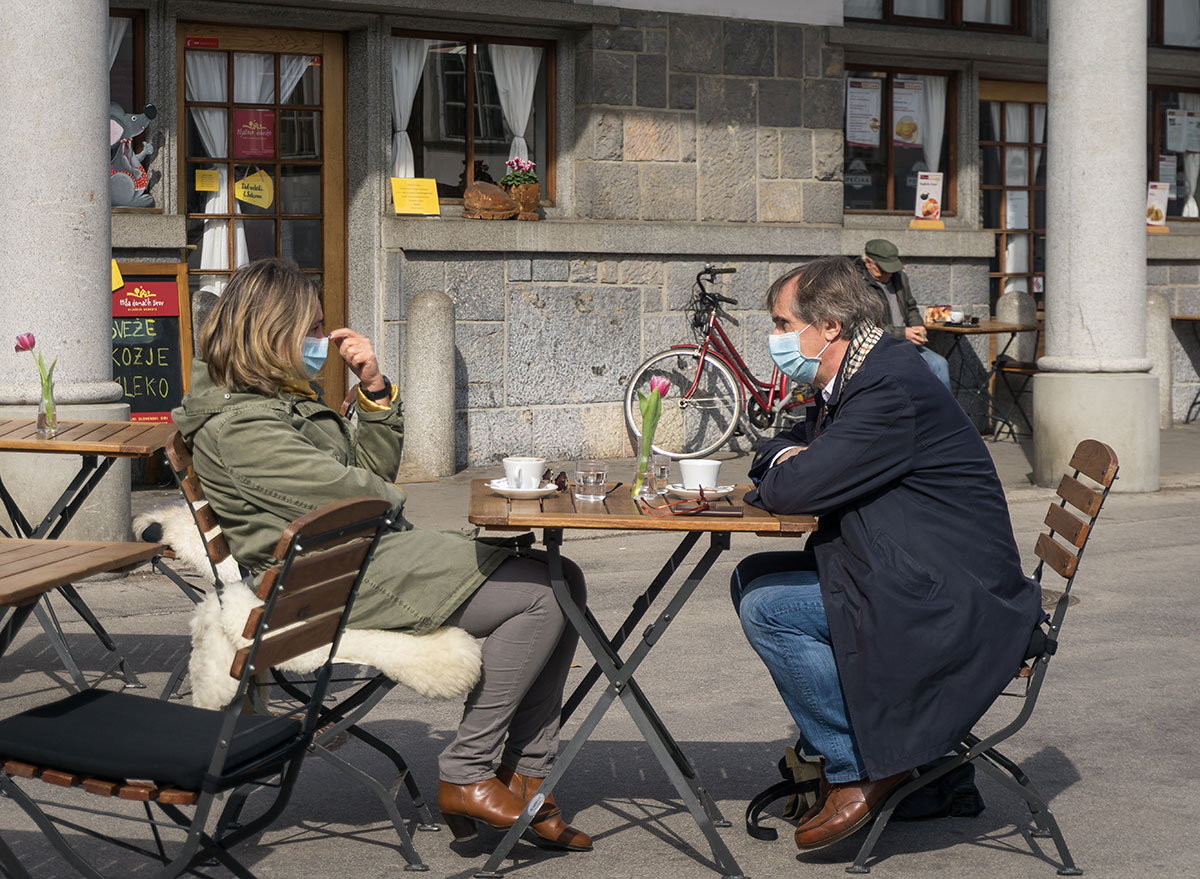
Recent studies suggest that you're more likely to contract COVID-19 indoors than you are outside, so when you go to a restaurant, consider asking for a table outside if available.
"If you are going to a restaurant, find one with outdoor seating and ideally sit outside to eat," says Rosen. "Never be afraid to ask if the wait staff and kitchen staff have been tested for the virus and how long ago."
Don't touch your face while grocery shopping.
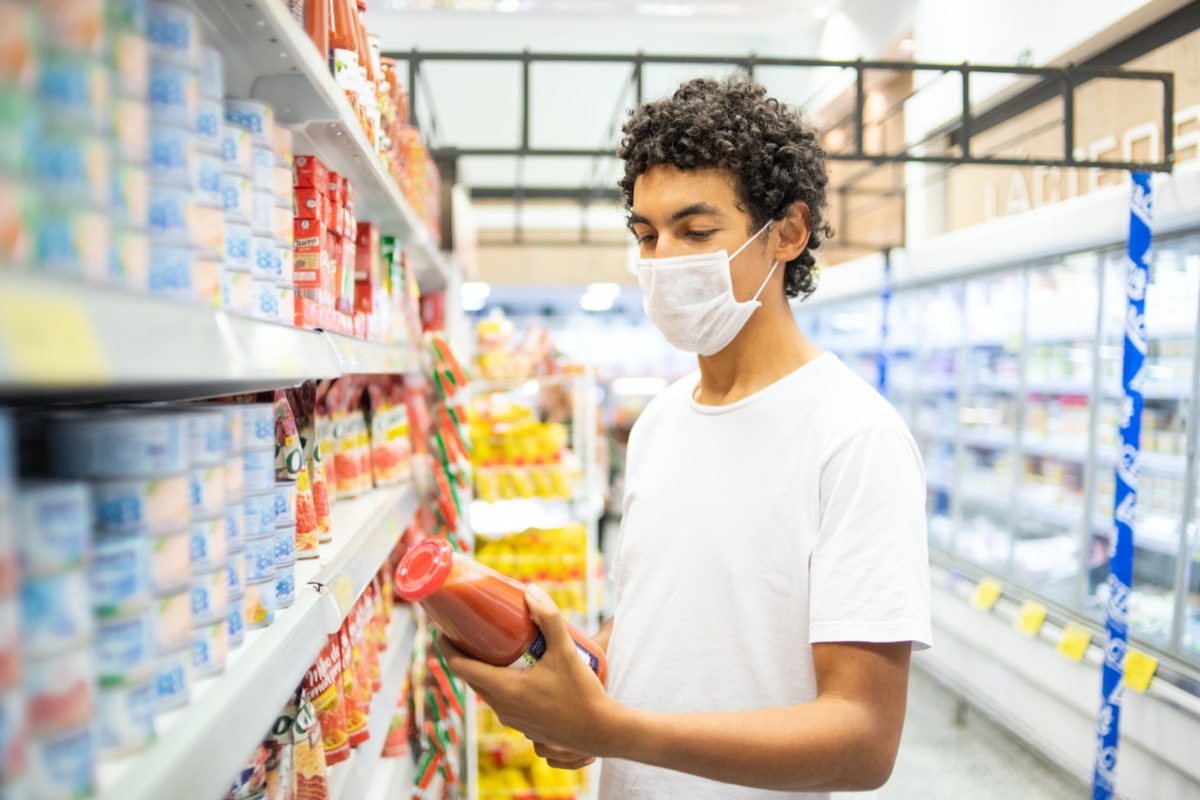
While you are grocery shopping, you may unconsciously touch your face, but Dr. Charity advises against this as it could be a direct way of transmitting the virus.
"When you go shopping for food do not touch your face," says Dr. Charity. "Sometimes wearing plastic gloves helps as it will remind you not to touch your face."
Remember, gloves won't protect you from COVID-19 if you continue to touch your face with them on.
Avoid using the bathroom at the restaurant.

Extensive Sunday brunches spent at restaurants will not be a thing for a while, as staff will likely be encouraging guests to leave as soon as they've finished their meals. If they aren't, Rosen advises to take it upon yourself to make your trip as short as possible, and to avoid going to the restroom.
"Don't spend longer than necessary, eat your food, and then return home," Rosen says. "That's one way to avoid using the bathroom, as it's probably the most highly trafficked area in the restaurant."
Don't wash your food with soap.
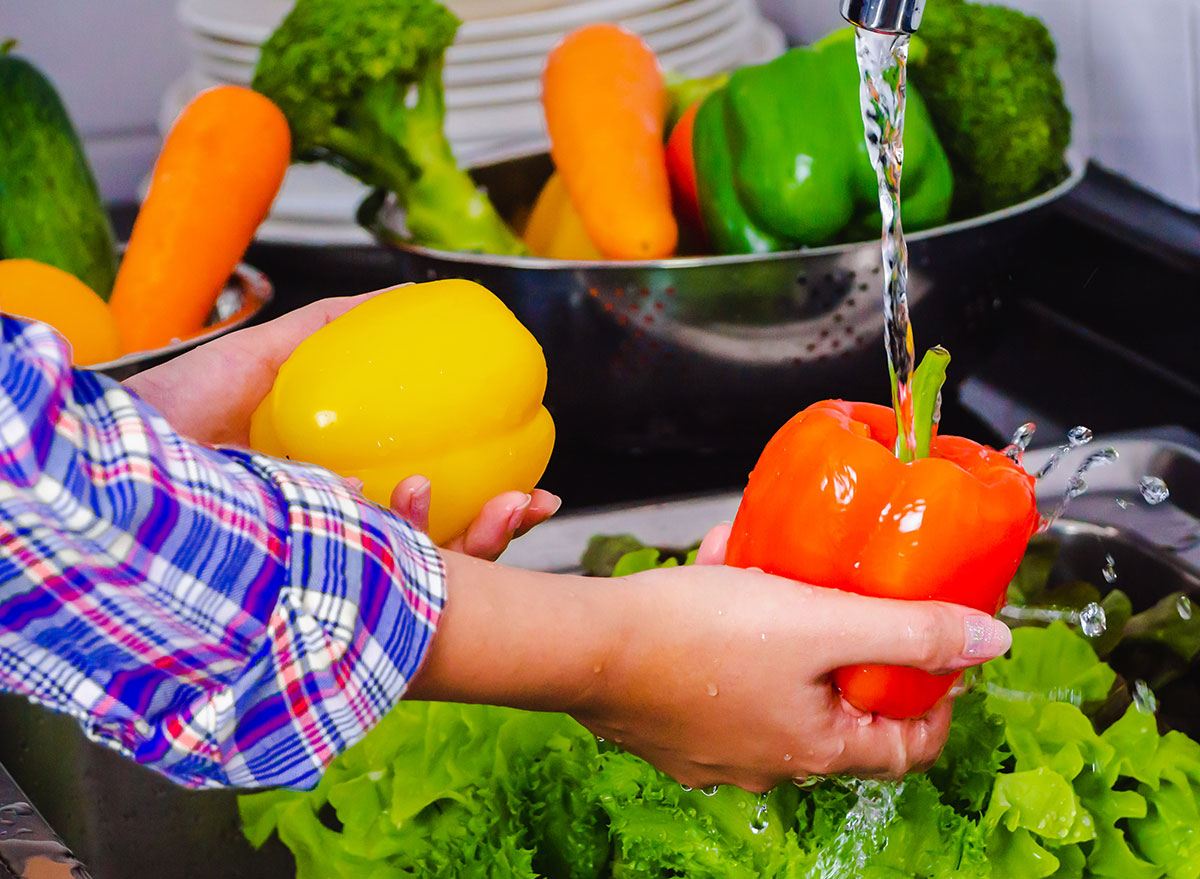
"I do not believe it is necessary to wash your food with antiseptic wipes or soap, especially with the new CDC guidance that states transmission through surfaces and objects is a less likely route for infection than initially suspected," says Rosen. "In addition, it's not healthy to eat soaps or disinfectants. But you should continue to rinse veggies and fruits with water to remove residual pesticides."
If you aren't aware of the CDC's latest COVID-19 update, check out There's Only One Way to Contract COVID-19 When Grocery Shopping, CDC Says.








